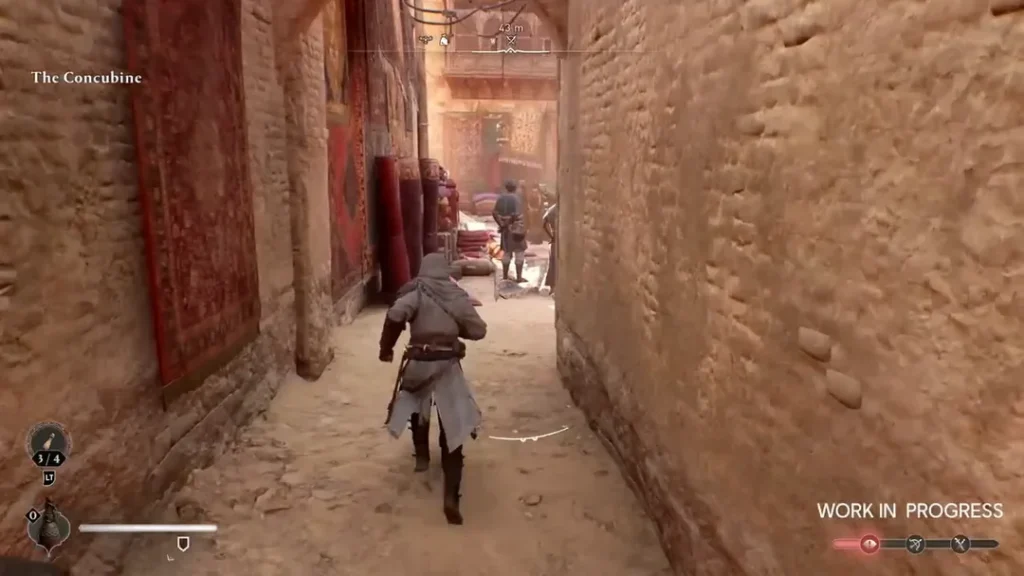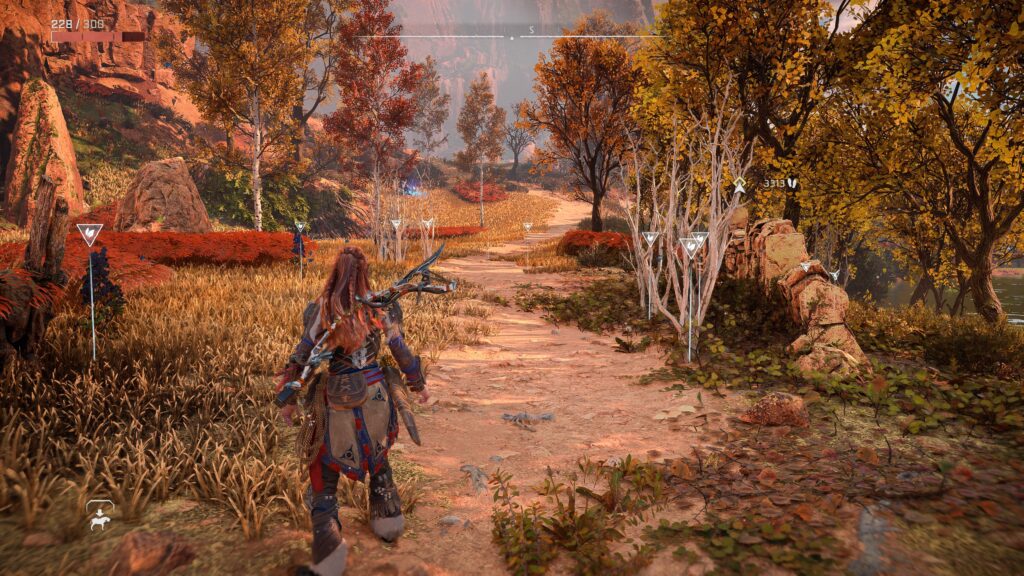Introduction to Progressive Gameplay
Progressive gameplay is a concept that has gained significant traction in the gaming industry, especially in recent years. This approach involves a dynamic mechanic where players experience a steady sense of growth and accomplishment as they navigate through a game’s challenges. By gradually introducing new skills, tools, and story elements, progressive gameplay fosters greater player engagement and enhances immersion in the gaming experience. Notably, titles such as Assassin’s Creed Mirage and Horizon Forbidden West exemplify how this mechanism is successfully implemented to draw gamers deeper into their respective narratives.
The effectiveness of progressive gameplay lies in its ability to deliver satisfying rewards at incremental stages. Players often find themselves motivated by the thrill of obtaining new abilities or items that can significantly alter their gameplay experience. This continuous sense of achievement can be attributed to the thoughtful pacing that game designers integrate into the narrative structure. As players encounter complex challenges and explore expansive worlds, the allure of progression keeps them invested—ensuring that both rewards and payouts foster a sense of satisfaction and accomplishment, thereby enhancing overall enjoyment.
In today’s fast-paced gaming landscape, the importance of progressive gameplay cannot be overstated. Acclaimed titles like Assassin’s Creed Mirage and Horizon Forbidden West have raised the bar with expertly crafted experiences that allow players to build their characters in unique ways. As gamers navigate through visually stunning environments and tackle diverse quests, the progressive nature of gameplay ensures that each session feels rewarding. Innovations in this area reflect a broader industry trend that prioritizes player experience, aligning with the demands of modern gamers who seek depth and engagement in their gameplay.
Assassin’s Creed Mirage: A New Era of Stealth and Strategy
Assassin’s Creed Mirage represents a significant shift in gameplay mechanics for the franchise, ushering in a new era of stealth and strategy that appeals to contemporary gamers. At its core, the game is designed to enhance the stealth genre, fostering an environment where players are encouraged to think strategically and take calculated risks. This evolution is not merely cosmetic; it is deeply embedded in the game’s mechanics and design.

One of the standout features of Assassin’s Creed Mirage is its focus on mobile play. Unlike previous iterations that often relied heavily on open-world exploration, this installment encourages players to engage in stealthier, more methodical approaches to combat and navigation. The game’s environments are intricately designed to support stealth tactics, allowing players to utilize the surrounding architecture to their advantage. For instance, rooftops, shadowy alleys, and bustling marketplaces create a rich tapestry for players to traverse, promoting a sense of immersion while embracing risk-taking behavior.
The innovative gameplay mechanics also extend to the arsenal players can wield. In Assassin’s Creed Mirage, a diverse range of tools and abilities enables players to customize their approach to each mission. This not only revitalizes the stealth genre but also rewards players for their strategic decisions. Players can choose to engage in direct combat or opt for a more covert method by utilizing distractions and stealth takedowns. Such flexibility enhances replayability and caters to various play styles.
Ultimately, by merging traditional stealth tactics with modern gameplay demands, Assassin’s Creed Mirage attracts a new generation of gamers and revitalizes a beloved genre. The game exemplifies how progressive play can reshape familiar mechanics, ensuring that players remain engaged and challenged as they navigate the complexities of this richly crafted world.
Horizon Forbidden West: Expanding the Open World Experience
Horizon Forbidden West presents an expansive open world that seamlessly combines breathtaking landscapes with intricate gameplay mechanics, offering players an immersive experience that evolves the action-adventure genre. The vastness of the environment invites exploration, urging players to traverse diverse terrains, from lush forests to arid deserts, thus broadening the scope of discovery within the game. This meticulous design not only enhances the physical landscape but also enriches the storyline through environmental storytelling, making the world feel alive and interconnected.

The game’s progressive gameplay introduces an array of new features that significantly improve exploration. One notable element is the addition of the “pulley” mechanics, which allows players to traverse vertical spaces with greater ease. This ability is complemented by new modes of transport, such as the flying mounts, which enable quick navigation across the sprawling map. These gameplay innovations offer a fresh dynamic, making traversing the landscape not just a means to an end, but an exciting experience in its own right.
Combat, too, has received a substantial upgrade. Players encounter tougher adversaries with advanced AI, necessitating diverse strategies and a keen understanding of the environment. The integration of elements of luck and risk introduces an unpredictable factor to engagements, challenging players to adapt their approach on the fly. This uncertainty not only makes each encounter thrilling but also mirrors real-life scenarios, inviting players to make strategic decisions that can impact their success.

Furthermore, as players engage with side quests and optional challenges, the game encourages exploration beyond the main storyline, ensuring that players feel rewarded for their curiosity. By blending these progressive gameplay features together, Horizon Forbidden West significantly enhances the adventure experience, setting a new standard for the action-adventure genre.

Key Mechanics Behind Progressive Gameplay
Progressive gameplay is defined by several key mechanics that shape the player’s experience, enhancing engagement and increasing satisfaction throughout their journey. Among these mechanics, player rewards systems, skill trees, and adaptive difficulty levels play a pivotal role in fostering a sense of achievement and growth in players.
Firstly, player rewards systems are essential for motivating gamers to explore the world and complete challenges. By providing tangible benefits such as new gear, currency, or experience points, these systems entice players to engage more deeply with the game. In titles like Assassin’s Creed Mirage and Horizon Forbidden West, the rewards are not merely superficial; they can alter the way players approach encounters and build their character. This creates a cycle of reward and risk that encourages experimentation and investment in gameplay, ultimately leading to a more immersive experience.
Secondly, the implementation of skill trees allows players to customize their avatars according to their preferred playstyle. This feature not only promotes strategic planning but also enhances the feeling of progression as individuals allocate skills to enhance their abilities. In both Assassin’s Creed Mirage and Horizon Forbidden West, skill trees facilitate diverse gameplay by enabling choices that align with personal strategies, thereby rewarding players for their investment in skill growth and decision-making.
Finally, adaptive difficulty levels are instrumental in maintaining player engagement. By adjusting the game’s challenge based on the player’s skill level and performance, developers ensure that all players remain challenged yet able to experience victories. This mechanic keeps the gameplay dynamic, scaling challenges to suit both new and seasoned gamers. Thus, it enhances the overall experience, providing a tailored environment that supports players’ growth while making their journey through the games rewarding and exhilarating. The integration of these mechanics fosters an environment where players can thrive in both Assassin’s Creed Mirage and Horizon Forbidden West, ultimately emphasizing the significance of progressive gameplay in the evolution of the genre.
The Impact of Progressive Gameplay on Player Experience
Progressive gameplay significantly shapes the emotional and psychological landscape of players immersed in titles such as Assassin’s Creed Mirage and Horizon Forbidden West. These games utilize progressive mechanics to foster a sense of agency, allowing players to make consequential decisions that have tangible effects on the game world. This involvement encourages players to form a deeper connection with the narrative and characters, heightening their overall engagement.
One of the principal factors contributing to player satisfaction within these games is the sense of achievement derived from overcoming challenges. As players progress through levels and tackle increasingly complex tasks, they experience a rewarding flow state. This sense of progression is meticulously designed to evoke feelings of competence and mastery. Players are not merely observers; instead, they are active participants shaping their adventures, which cultivates a profound emotional investment in their journey.
Additionally, games that incorporate progressive gameplay often introduce diverse paths and outcomes based on players’ in-game choices. This mechanic enhances the player’s agency, prompting them to weigh options carefully and consider potential repercussions. Such complexity elevates the gaming experience, fostering a sense of ownership over the story and its outcomes. This ownership can lead to heightened emotional satisfaction, as players feel genuinely connected to the decisions they make and the consequences that follow.
Moreover, progressive gameplay serves to maintain player motivation over extended play sessions. By consistently rewarding players with new skills, narrative developments, or exploration opportunities, these games keep players engaged. This dynamic encourages a continued investment in the game’s world, fostering curiosity and anticipation. Overall, the integration of progressive gameplay emerges as a vital element in enhancing player experiences, embedding them deeper into the immersive worlds of games like Assassin’s Creed Mirage and Horizon Forbidden West.
Comparative Analysis of Game Design: Mirage vs. Forbidden West
The design philosophies of Assassin’s Creed Mirage and Horizon Forbidden West offer a fascinating juxtaposition that highlights their unique approaches within the action-adventure genre. Both games exhibit progressive gameplay mechanics, yet they diverge significantly in their storytelling techniques and player engagement. In Assassin’s Creed Mirage, the narrative is steeped in historical context, allowing players to immerse themselves in the richly crafted environments of Baghdad. The game emphasizes stealth, exploration, and a more grounded approach to combat, inviting players to develop a tactical mindset. This focus is a nod to the series’ origins and caters to long-time fans who appreciate a blend of history and stealth-based gameplay.
Conversely, Horizon Forbidden West exploits its expansive post-apocalyptic world to enhance narrative depth and gameplay variety. The game integrates a blend of verticality and vast landscapes that encourage exploration and discovery. Players are rewarded not only through combat but also through environmental storytelling and side quests that enrich the overall experience. This open-world design fosters a sense of agency, allowing players to choose how they interact with the narrative. The game’s robust crafting system and diverse skill trees support a more action-oriented style, differentiating it from Mirage’s stealth-based mechanics.
When evaluating rewards, both titles reinforce their respective gameplay philosophies. In Assassin’s Creed Mirage, players receive incentives through the mastery of stealth techniques and historical exploration, which resonate with the series’ core themes. Alternatively, Horizon Forbidden West offers players a wider array of rewards, ranging from crafting materials to character progression, which aligns with its more expansive, action-oriented structure. The contrast in design philosophies reinforces the evolution of progressive gameplay, showcasing how each game carves its niche within the genre while catering to varying player preferences.
The Future of Progressive Gameplay in Gaming
The landscape of gaming is undergoing a significant transformation as developers increasingly embrace progressive gameplay mechanics. Titles like Assassin’s Creed Mirage and Horizon Forbidden West exemplify this evolution by incorporating immersive narratives and adaptive gameplay systems. Looking ahead, the future of progressive gameplay is poised to embrace these trends more profoundly, aligning with both technological advancements and player expectations. As players seek more engaging experiences, the integration of storytelling with interactive elements will play a crucial role in shaping upcoming titles.
One of the most notable trends influencing progressive gameplay is the growing importance of mobile play. With the proliferation of smartphones and tablets, game developers are exploring ways to create experiences that are both accessible and engaging on these platforms. The potential for progressive gameplay in mobile games lies in the ability to deliver a seamless experience that transcends the limitations of traditional gaming formats. Features such as location-based interactions, augmented reality, and touch-sensitive controls can foster deeper player engagement and a more dynamic gameplay experience, encouraging players to explore their environments in innovative ways.
Additionally, the rise of cloud gaming may further enhance the scope of progressive gameplay. As gamers gain access to high-quality titles without the need for powerful hardware, developers may be able to create more elaborate and resource-intensive experiences that were previously unattainable. This opens up possibilities for complex narratives that evolve based on player choices and a rich, interactive world that adapts to players’ actions, creating a highly personalized experience.
In conclusion, as the gaming industry moves toward a future rooted in progressive gameplay, developers will need to remain attuned to current trends in mobile play and cloud technology. By leveraging these advancements, they can create immersive and compelling experiences that redefine how players interact with video games, ultimately enhancing the overall enjoyment and engagement within the medium.
Players’ Perspectives: Community Feedback and Reactions
In the dynamic landscape of modern gaming, player feedback has become an invaluable asset in evaluating the evolution of gameplay mechanics. Both “Assassin’s Creed Mirage” and “Horizon Forbidden West” have garnered robust community reactions, revealing diverse perspectives on what constitutes progressive play, as well as the interplay between luck and risk within these titles. Players have discussed the specific gameplay elements they find most engaging, such as the refined combat mechanics in “Mirage” and the intricate narrative design in “Horizon Forbidden West.”
The community response to “Assassin’s Creed Mirage” highlights its return to the series’ roots, focusing on stealth mechanics and immersive world-building. Many players appreciate the shift from the expansive approach of recent entries, emphasizing the importance of skillful maneuvering over sheer exploration. This evolution in gameplay mechanics has been noted for inviting a deeper sense of strategy and consideration, aligning well with the desires of longtime fans. Players express a nuanced appreciation for the balance of risk-reward scenarios, where calculated risks yield significant rewards, thus enhancing the overall enjoyment and sense of achievement.
Through these conversations, it is evident that community feedback significantly informs developers’ approaches to gameplay evolution. As players continue to share their thoughts, the discourse around what makes a game successful remains an essential aspect of the gaming landscape.
Conclusion: The New Frontier of Gaming Experiences
In the rapidly evolving landscape of video games, titles such as Assassin’s Creed Mirage and Horizon Forbidden West exemplify the innovative strides being made in progressive gameplay. These games highlight the significant shift from traditional gaming frameworks to experiences that prioritize player engagement and strategic decision-making. Utilizing rich narratives, complex characters, and dynamic environments, they offer a more immersive experience that resonates with both casual and hardcore gamers.
One of the pivotal aspects of these titles is their focus on player agency. In Assassin’s Creed Mirage, for instance, the choices made by players are critical in determining the trajectory of the storyline, which enhances interactivity and emotional investment. Similarly, Horizon Forbidden West incorporates strategic gameplay elements that require players to adapt their tactics based on their environment, thereby increasing the need for critical thinking and planning. This progressive gameplay approach cultivates a unique blend of skill and strategy, creating a more substantial challenge for players.
Moreover, the role of luck within these gaming experiences cannot be understated. The unpredictability of certain game mechanics can elevate tension and excitement, forcing players to navigate through unforeseen circumstances, which enriches their overall experience. This balance between skill, strategy, and luck encourages a deeper exploration of gameplay, exemplifying how modern titles are not merely about completing quests but about engaging in a dynamic environment that continuously evolves with player interactions.
As the gaming industry continues to embrace these progressive trends, the relationship between players and their virtual worlds will undoubtedly deepen. The ongoing innovations in gameplay mechanics and narrative structures pave the way for enhanced engagement, setting a new standard for future games to aspire towards. Ultimately, the transformation ushered in by these developments signifies not just a change in how games are played, but also in how players connect with their experiences.

